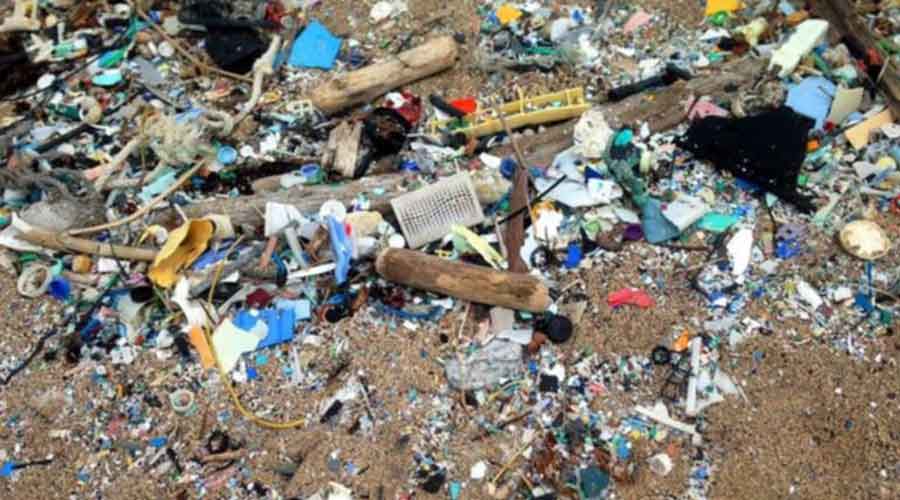The presence of microplastics in agriculture fields and crops in two districts of Bihar has become a cause of concern as it can lead to various diseases in humans, an official said.
The plastic wastes that accumulate in environment are broken down into smaller fragments and particles under physical, chemical or biological action, gradually forming microplastics (MPs).
The MPs, tiny materials less than 5 mm in diametre, are regarded as a major source of plastic pollution in the environment. They are called microplastics and it cannot be seen with the naked eye.
“Because of the extensive use plastics, the MPs have become a global environmental issue,” state pollution control board chairperson Ashok Kumar Ghosh told PTI.
“Recent studies reveal the presence of MPs in agricultural fields as well as crops in Bhagalpur and Buxar. It’s a matter of serious concern,” he said.
Due to human activities, such as plastic mulching, sewage, fertiliser coatings and littering, soil has become the largest reservoir of the MPs, according to the chairperson.
The MPs and nanoplastics (NPs) have been exposed to humans via various pathways, such as tap and bottled water, beverages, seafood, milk, salt, fruits and vegetables.
There are reports that suggest that the MPs can enter into blood cells of the human body, and can cause organ toxicity and dysfunctional metabolic activities, resulting in carcinogenic disease, he said.
The professor underlined that the consumption of MPs was significantly associated with diseases like infertility, obesity, cancer and others.
Ghosh, who also heads the research centre at the Mahavir Cancer Institute in Patna, said a study would be conducted soon to quantify the presence of MPs in farmland soils in these two districts.
He stressed on the need to conduct more studies to focus on the damage mechanism at the molecular and cellular level due to consumption of the MPs and the NPs.
Data gaps related to the potential NPs formation in the gastrointestinal tract of humans should be considered, the official said.
Ghosh urged people to also come forward and support the agencies in enforcing the recent ban on ‘single-use plastic’ announced by the Union government.











